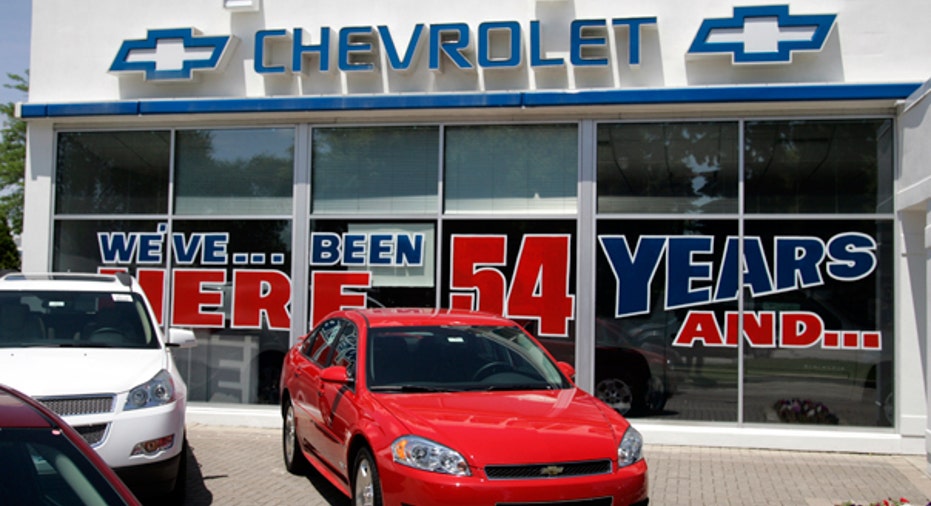Insurance Blunders to Avoid

Insurance coverage in the event of a catastrophe is one blessing insurance customers can be thankful for -- unless you've skipped some vital steps in making sure your policies reflect your life.
Your goose could be cooked if you have gaps in coverage, leaving you with far less insurance money than you expected from a claim.
Here are five common errors to avoid.
1. Forgetting to add your teen driver to your auto insurance policy
Typically a car insurance policy covers you and the licensed members of your household as well as anyone else to whom you give occasional permission to drive the car.
To set a premium that accurately reflects risk, the insurance company needs to know about the licensed drivers who live with you, and you're supposed to provide that information.
Conveniently "forgetting" to tell the insurer about a new teen driver, or any other driver in the household for that matter, is a bad idea. What happens if the unlisted driver causes an accident?
Technically, if a company can prove you purposely misrepresented information, it could deny the claim based on fraud. In addition, nonstandard insurance companies that cater to risky drivers are more likely to take a hard line than insurers who market to moderate- and low-risk customers, says Robert U'Ren, senior vice president of Quality Planning, a company that helps insurers identify money-losing policies.
Standard insurance companies typically will cover the claim from the teen crash but charge you back premiums, he says. Don't assume you get off scot-free. Misleading the company could prompt it to not renew your policy, and the record of a claim for an unlisted driver could put a black mark on your record, which will make it harder to find affordable car insurance.
"A lot of information is shared among insurance companies," notes U'Ren.
Insurers lost out on $2.7 billion in premiums in 2010 because of consumers failing to disclose information about household drivers, according to a 2011 Quality Planning report. Those losses don't just hurt the insurance companies; they get passed on to other customers in the form of higher premiums overall.
2. Remodeling your house without increasing home insurance coverage
Review your home insurance periodically to make sure the amount jibes with current construction costs and takes into account any improvements you make. You should insure your home for the cost to rebuild it.
"Anytime you make changes -- adding a room to a house, upgrading your kitchen or bath -- notify your insurer so that these changes are reflected in the policy," says Tully Lehman, a spokesperson for the Insurance Information Network of California.
Otherwise you will be underinsured. Lehman recalls one Lake Tahoe, Calif.-area homeowner who, over the course of many years, remodeled a small two-bedroom, one-bath house into a two-story mountain dream home. Trouble was he never changed the amount of home insurance coverage. After a fire swept through the area and leveled the house, the home insurance payout was enough only to rebuild the original, modest structure.
The problem is surprisingly common.
One year after the September 2011 central Texas wildfires, for instance, 56 percent of affected homeowners reported being underinsured by an average of $110,000, according to United Policyholders, a consumer advocacy group in San Francisco.
Here are home insurance basics.
3. Expecting home insurance to cover your home business
Just because you work at home doesn't mean your business is covered by home insurance. Typically home insurance covers just $2,500 in business-related property, and includes no liability coverage for business activities.
What if one of your business consulting clients slipped and fell on your stairs? Or a batch of cookies from your baking business sent someone to the hospital? Home insurance wouldn't cover your legal expenses if you were sued.
Most standard policies define a business as a "trade, profession or occupation engaged in on a part-time, full-time or occasional basis" that in the last 12 months earned $2,000, according to Christine G. Barlow, a Chartered Property Casualty Underwriter and associate editor of FC&S Online, which interprets insurance policies for the industry.
Talk to an insurance agent about the type of business insurance you need.
4. Never telling your beneficiaries about your life insurance policy
Imagine paying thousands of dollars in premiums for life insurance, but your loved ones never collect a dime after you die. Unfortunately this happens all too frequently because policyholders fail to give their beneficiaries the information they need to file a claim.
Family members often report knowing there was a policy but having no idea the type, amount or company. Make it easy for your loved ones. Give your beneficiaries the company name and policy number and let them know where you keep your important documents.
Here's how to find lost life insurance policies.
5. Buying a health insurance plan without reading the details
Starting in 2014, health insurance plans will be standardized. Even the most basic plans will have to include certain benefits under the Affordable Care Act.
But until then, individual plans vary widely. Some, for instance, don't include prescription drug coverage. Some plans might not have your doctors in their provider networks. And many individual health plans don't cover maternity care. According to the most recent figures from the National Women's Law Center, only 13 percent of individual health plans available to a 30-year-old woman across the country provided maternity coverage in 2009.
Here's how to buy the worst health insurance plan ever: 7 scenarios to avoid.
Bottom line: Read the benefits carefully before you buy health insurance, and don't buy solely by price. Think about your health care needs and find a plan to match.
The original article can be found at Insure.com:Thanks for nothing!



















